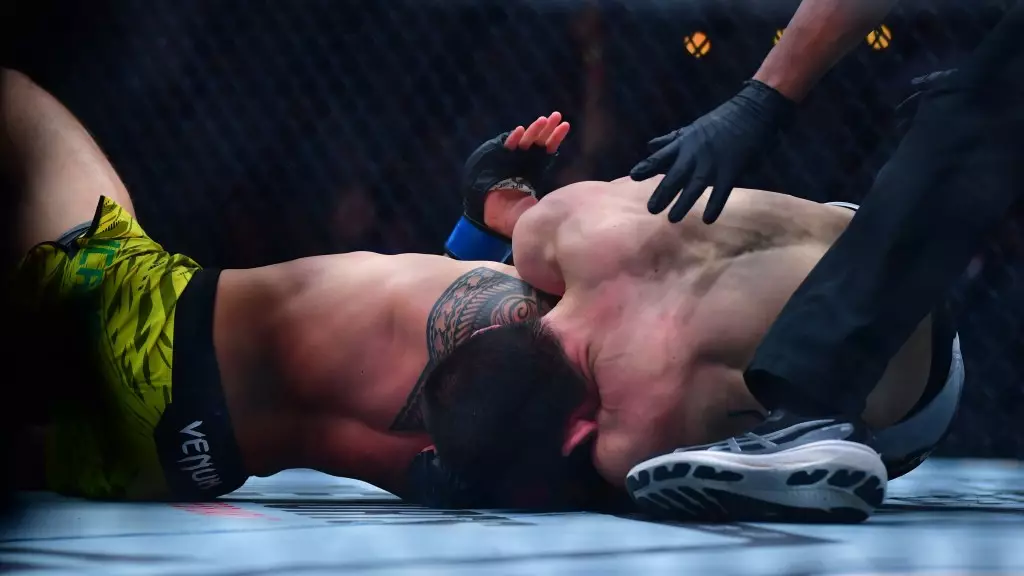In the aftermath of UFC 311, where Islam Makhachev faced off against Renato Moicano, Paddy Pimblett unleashed a torrent of frustration directed at Moicano’s quick submission defeat. This event, held at the Intuit Dome, showcased Makhachev’s grappling prowess, culminating in a swift victory over Moicano, who found himself in a chokehold within a remarkably short span. Pimblett’s vehement criticism raises pivotal questions about fighting spirit, professionalism, and the expectations placed on athletes who step into the octagon under intense pressure.
Moicano, a seasoned MMA fighter with an impressive record, faced an uphill battle when he agreed to fight Makhachev on only one day’s notice. The Brazilian was initially set to clash with Beneil Dariush, but circumstances led him to step up against one of the sport’s most formidable champions. Critics, including Pimblett, suggest that regardless of the circumstances, one must always exhibit resilience and a willingness to fight until utterly incapacitated, echoing a longstanding ethos in combat sports.
Pimblett’s blunt remarks—urging Moicano to go “asleep” rather than tap out—highlight a mentality pervasive among some fighters. The expectation is for athletes to demonstrate an unwavering commitment to the fight, regardless of the potential for injury or defeat. Yet one must ask: does this mentality contribute to a culture of valor, or does it dangerously glamorize the idea of suffering unnecessarily in pursuit of honor?
While Pimblett’s criticism may resonate with fans who view MMA as a battleground for valor, it glosses over the complexities of real combat scenarios. Fighters like Moicano often face unprecedented challenges, not only from their opponents but also from the circumstances leading up to a fight. Stepping into the cage without preparedness can have unforeseen consequences on performance and decision-making. Therefore, one must consider whether Pimblett’s anger is misdirected, as much of the discourse surrounding “going out on your shield” often ignores strategic wisdom.
Moreover, what does it say about sportsmanship and mutual respect among fighters when one athlete openly derides another for their choice to avoid potential injury? Taking a loss on the chin is part of fighting, but expecting every fighter to embody a warrior spirit in every situation may undermine their humanity.
Ultimately, Pimblett’s reaction to Moicano’s defeat exemplifies a clash of traditional values with contemporary realities in professional fighting. While the desire to see heart and grit in the octagon is prevalent among fans, it’s vital to balance that expectation with empathy for fighters who navigate their own physical and mental battles. Rather than casting judgment, perhaps the focus should shift toward fostering resilience and strategic acumen that respect both the sport and its competitors. After all, being a fighter encompasses more than a display of toughness; it involves making calculated choices to ensure one’s well-being, both inside and outside the cage.

